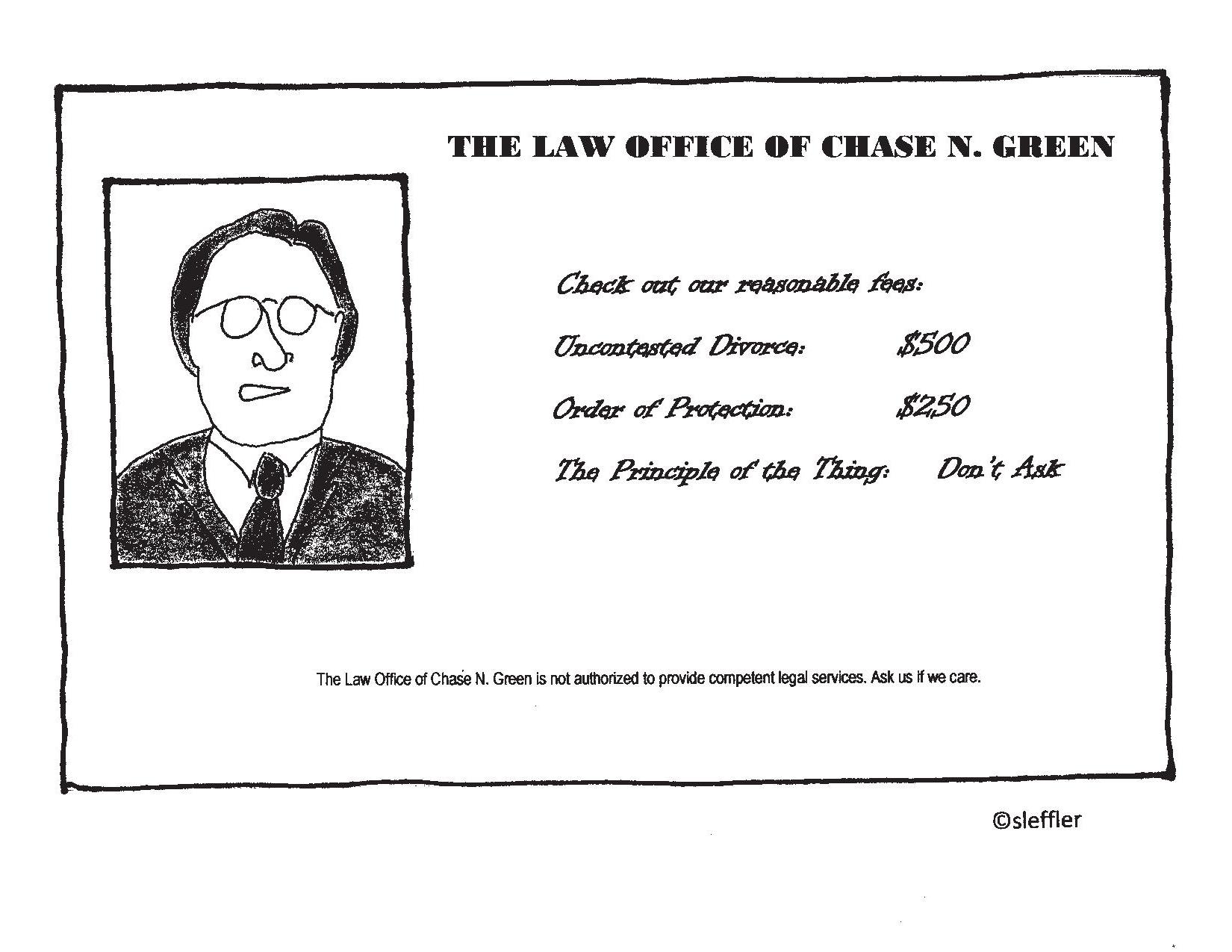
9 minute read
COVID-19 Brings Renewed Attention to Supervised Practice Pending Admission
By JODI L. WILSON
It’s that time of year again. Graduating law students are wrapping up their academic journeys and turning their attention to the last hurdle between them and a license to practice law: the bar exam. But this year, the situation is decidedly different. To say that COVID-19 has complicated matters does not quite do justice to the uncertainty recent graduates now face. At the time of this writing, 17 jurisdictions have canceled the July exam and announced a fall exam, 8 jurisdictions plan to offer a July exam and a fall exam, 4 jurisdictions have postponed the July exam to a date yet to be determined, and 27 states are still only planning an exam in July only, though some have advised they will reschedule for fall if necessary. 1
Advertisement
The Tennessee Board of Law Examiners plans to administer a July exam as well as a fall exam. 2 Of course, these plans are subject to change in response to the evolving situation. Moreover, applicants are not guaranteed a seat at the July exam. Due to restrictions on the size of gatherings and the need to ensure appropriate distance between applicants, the Tennessee Supreme Court approved a seating protocol that cut the number of available seats in half and established a priority system for allocating the available seats. 3
With so much uncertainty, recent graduates and those who have hired or will hire them are understandably concerned about the delay in graduates’ ability to begin practicing law. Across the country, many have called for jurisdictions to adopt a diploma privilege or implement a rule that allows bar applicants to practice under the close supervision of a licensed attorney pending admission to the bar (a “Supervised Practice Rule”). 4
Here, Tennessee is ahead of the curve. Tennessee has had a Supervised Practice Rule since 1975. 5 Section 10.04 of Tennessee Supreme Court Rule 7 (titled “Supervised Practice Before Admission Pending Examination Score”) provides a valuable tool that allows bar applicants to begin providing legal services to clients after they apply to take the bar but before they are admitted. Supervised practice under Section 10.04 benefits the applicant, the employer, and the client. Given the possibility that recent graduates will not be able to take the bar in July, Tennessee’s Supervised Practice Rule has taken on increased importance and visibility. This article summarizes the eligibility requirements, the scope of practice permitted, the supervisory obligations of the attorneys who agree to supervise the bar applicant under the rule, permissible compensation arrangements, and the steps necessary to register for supervised practice. Of course, you should read the rule carefully before engaging in supervised practice or agreeing to supervise a bar applicant under the rule.
Who is Eligible to Practice Before Admission and for How Long?
Law school graduates who graduated from an ABAaccredited school or a Tennessee-approved law school are eligible for practice pending admission as long as they (i) have never been licensed to practice law in any United States jurisdiction; (ii) have submitted an application for admission by exam or by transferred UBE score; and (iii) work in Tennessee under the supervision of a licensed Tennessee lawyer who meets the requirements of the rule (the “Supervising Attorney”).
Graduates meeting these requirements (“Bar Applicants”) are permitted to engage in supervised practice before taking the bar exam and after, while they await bar exam results and swearing in. 6 Of course, this permission expires as soon as the Bar Applicant is admitted to practice in Tennessee or any other jurisdiction. For the unsuccessful Bar Applicant, the permission expires if the applicant fails to apply for re-examination within 10 days after notification of the bar results. Permission also expires if a show cause order is issued for the Bar Applicant.
Ordinarily, supervised practice is limited to sixteen months from the Bar Applicant’s law school graduation.
Given the possibility that a July exam will not be offered, the Tennessee Supreme Court has extended the time permitted for supervised practice to November 15, 2021, for Bar Applicants who have applied for the July 2020 exam, graduated from law school between March 1, 2020, and July 24, 2020, and complete the earliest exam offered. 7
Who is Eligible to Serve as a Supervising Attorney?
A Supervising Attorney under Section 10.04 must be a Tennessee attorney in good standing who has practiced for at least three years. The Supervising Attorney must assume “professional responsibility for the direct and immediate supervision for the professional work of the applicant.”
What Services Can the Bar Applicant Provide?
The Supervised Practice Rule allows Bar Applicants to provide a broad range of legal services under supervision and with the written consent of the client. In addition to interviewing and counseling clients, negotiating settlements, and drafting legal instruments, the Bar Applicant is permitted to represent clients in mediation and other non-litigation matters.
The Bar Applicant is also permitted to appear in Tennessee trial courts, appellate courts, and administrative tribunals subject to the requirements established in Section 10.04. The client’s written consent must be filed with the court or tribunal and brought to the attention of the judge or presiding officer. If the applicant’s signature is included on documents filed with a court or tribunal, it must be accompanied by the “Tennessee Bar Applicant” designation. For specified criminal matters and matters of civil or criminal contempt, the Bar Applicant is limited to assisting the Supervising Attorney during pretrial, trial, and post-trial proceedings. But in all other civil and criminal matters in trial courts and administrative tribunals, the Bar Applicant may participate in the proceedings without direct supervision, with the permission of the judge or the presiding officer. In matters before the appellate courts, the Bar Applicant may seek permission of court to argue the case, although the Supervising Attorney must be present for the argument and responsible for the applicant’s conduct. Finally, all documents filed with an appellate court must be filed in the name of the Supervising Attorney.
In all communications other than internal communications, the Bar Applicant’s signature must be accompanied by the “Tennessee Bar Applicant” designation. Additionally, the Supervising Attorney must also sign the communications.
What is the Role of the Supervising Attorney?
By agreeing to serve as the Supervising Attorney, an attorney agrees to provide direct, immediate, and personal supervision of the Bar Applicant. The Supervising Attorney must “ensure that the applicant is properly supervised and instructed in accordance with [Tennessee Supreme Court Rule 8, Rule of Professional Conduct 5.3,” which provides the supervisory responsibilities for lawyers supervising nonlawyer assistants.
Under Rule 5.3(b), as an attorney with “direct supervisory authority,” the Supervising Attorney must “make reasonable efforts to ensure that the nonlawyer’s conduct is compatible with the professional obligations of the lawyer.” Additionally, under Rule 5.3(c), the Supervising Attorney will be vicariously responsible for the Bar Applicant’s rule violations if: (1) the Supervising Attorney orders or ratifies the conduct; or (2) knows about the conduct and fails to take reasonable remedial measures when doing so could avoid or mitigate the consequences. Notably, the Tennessee Supervised Practice Rule provides that a disciplinary complaint against a Bar Applicant automatically triggers a complaint against the Supervising Attorney as well.
Given the Supervising Attorney’s responsibilities under Rule 5.3 and the specific requirements of the Supervised Practice Rule, a Supervising Attorney should establish and implement a thorough supervisory system, including but not limited to: Providing the Bar Applicant with instruction on the Bar Applicant’s ethical obligations, with a particular focus on the ethical obligations most implicated by the services to be provided by the Bar Applicant (e.g., client communication, confidentiality, communications with the court and third parties). Ensuring that the Bar Applicant is familiar with the firm’s or agency’s procedures for handling ethical questions. Carefully reading Section 10.04 and requiring the Bar Applicant to do so as well, to ensure that both are equipped to comply with all aspects, including confining the Bar Applicant’s activities to permissible services and avoiding any implication that the Applicant is an attorney.
Communicating directly with the client about the respective role of the Bar Applicant and the Supervising Attorney and obtaining the written client consent required by Section 10.04. Although Section 10.04 does not specify what must be included in the written consent, the Supervising Attorney should consider including: (1) an acknowledgement that the Bar Applicant has not been admitted to the Bar and will be practicing pursuant to Section 10.04; (2) the scope of services to be provided by the Bar Applicant; and (3) a description of the role the Supervising Attorney will play in the case and, in particular, in supervising the Bar Applicant. Filing the written consent in any matters pending before a court or administrative tribunal and bringing it to the attention of the judge or presiding officer. Confirming that the “Tennessee Bar Applicant” designation is properly reflected on all court filings and external communications. Signing any communications other than internal communications and court filings as required by Section 10.04.
Ensuring that the Bar Applicant’s communications are compatible with the Rules of Professional Conduct.
• Being physically present in court and administrative proceedings as required by Section 10.04.
What About Compensation?
Section 10.04 permits the Supervising Attorney to charge the client an appropriate fee for the services rendered by the Bar Applicant. The Bar Applicant “may be compensated as an employee of a firm, agency, clinic or other organization[, but the] rate of such compensation [must be] established independent of compensation paid for [the client’s] representation.” Moreover, the Bar Applicant cannot request or accept compensation from the client.
What is the Process to Register for Supervised Practice?
Registering for supervised practice is straightforward. The Bar Applicant must submit the Application to Register for Practice under Supervision 8 along with the fee, currently $40, and an affidavit of the Supervising Attorney affirming the attorney’s agreement to supervise the Bar Applicant as required by Section 10.04.
Conclusion
Although COVID-19 has brought renewed attention to Tennessee’s Supervised Practice Rule, the rule provides a useful tool for law graduates and employers even in less chaotic times. As recent graduates await their bar results, there’s no need to delay their entry into practice and integration into the legal community. The Supervised Practice rule permits them to immediately begin providing legal services with appropriate supervision for the benefit of their employers and clients.
1 July 2020 Bar Exam: Jurisdiction Information, National Conference of Bar Examiners, http://www.ncbex.org/ ncbe-covid-19-updates/july-2020-bar-exam-jurisdictioninformation (last updated May 18, 2020).
2 Second Order Temporarily Modifying Certain Provisions of Tennessee Supreme Court Rule 7 Related to the July 2020 Bar Examination, In Re: COVID-19 Pandemic, No. ADM2020-00428 (Tenn. May 11, 2020), https://www.tnble. org/wp-content/uploads/2020/05/SCT-COVID-19-OrderBLE-5-11-2020.pdf.
3 Id.; Tennessee Board of Law Examiners, Policy P-4.03 (May 2020), https://www.tnble.org/wp-content/uploads/2020/05/ BLE_Policy_Revision_P-4.03.pdf.
4 See, e.g., Claudia Angelos et al., The Bar Exam and the COVID-19 Pandemic: The Need for Immediate Action (Ohio State Pub. Law Working Paper No. 537, 2020; UNLV William S. Boyd Sch. of Law Legal Studies Research Paper, 2020), https://ssrn.com/abstract=3559060.
5 See Tenn. Code Ann., Sup. Ct. R. 37, § 22 (1977) (noting that § 22 was added Nov. 3, 1975). The rule has since been amended and moved.
6 Although supervised practice may begin before the bar exam, bar applicants should dedicate the limited time between graduation and the bar exam to preparing for the exam if at all possible.
7 Order Temporarily Modifying Certain Provisions of Tennessee Supreme Court Rule 7 Related to the July 2020 Bar Examination, In Re: COVID-19 Pandemic, No. ADM2020- 00428 (Tenn. April 2, 2020), https://www.tnble.org/wpcontent/uploads/2020/04/BLE-Covid-19-Order-entered.pdf.
8 The form is available at https://bwp.tnble.org/wp-content/ uploads/2019/08/registration_application_for_supervised_ practice_3.19_fillform.pdf.







